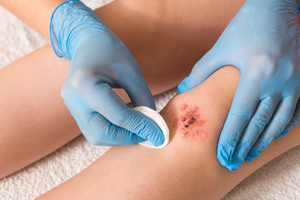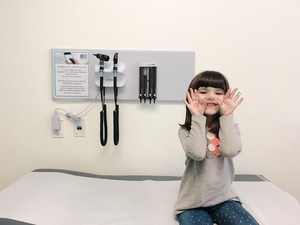Find Hepatitis test
in Hartford, CT.
Own a clinic? Add your location.
Help patients book appointments with you on Solv. It's free!
20 instant-book locations

American Family Care, West Hartford
American Family Care

DOCS Urgent Care, West Hartford
DOCS Urgent Care

Hartford HealthCare- GoHealth Urgent Care, Bishops Corner
Hartford HealthCare- GoHealth Urgent Care

Yale New Haven Health Urgent Care, Glastonbury
Yale New Haven Health Urgent Care

Hartford HealthCare- GoHealth Urgent Care, Glastonbury
Hartford HealthCare- GoHealth Urgent Care

Hartford HealthCare- GoHealth Urgent Care, Wethersfield
Hartford HealthCare- GoHealth Urgent Care

Hartford HealthCare- GoHealth Urgent Care, Corbins Corner
Hartford HealthCare- GoHealth Urgent Care

Hartford HealthCare- GoHealth Urgent Care, Manchester
Hartford HealthCare- GoHealth Urgent Care

Hartford HealthCare- GoHealth Urgent Care, Newington
Hartford HealthCare- GoHealth Urgent Care

Hartford HealthCare- GoHealth Urgent Care, South Windsor
Hartford HealthCare- GoHealth Urgent Care

Yale New Haven Health Urgent Care, Manchester
Yale New Haven Health Urgent Care

American Family Care, Rocky Hill
American Family Care

American Family Care, New Britain
American Family Care

Hartford HealthCare- GoHealth Urgent Care, Windsor
Hartford HealthCare- GoHealth Urgent Care

Hartford HealthCare- GoHealth Urgent Care, Vernon
Hartford HealthCare- GoHealth Urgent Care

Hartford HealthCare- GoHealth Urgent Care, Berlin
Hartford HealthCare- GoHealth Urgent Care

American Family Care, Vernon
American Family Care

Hartford HealthCare- GoHealth Urgent Care, Avon
Hartford HealthCare- GoHealth Urgent Care

Hartford HealthCare- GoHealth Urgent Care, Bristol
Hartford HealthCare- GoHealth Urgent Care

Hartford HealthCare- GoHealth Urgent Care, Granby
Hartford HealthCare- GoHealth Urgent Care
Own a clinic? Add your location.
Help patients book appointments with you on Solv. It's free!
About Hepatitis test
Who should get tested for hepatitis?
Anyone who has been exposed to the virus should get tested for hepatitis. This includes individuals who have shared needles, had unprotected sex, received a tattoo or piercing with unsterilized tools, or have been in close contact with a person infected with hepatitis. According to the CDC, baby boomers (born between 1945 and 1965) are also at a higher risk and should get tested, as they may have been infected from contaminated blood and blood products before widespread screening virtually eliminated this risk in 1992.
Importance of getting tested
Getting tested for hepatitis is crucial because it can lead to serious health problems like liver cancer and cirrhosis if left untreated. Early detection allows for effective treatment that can slow disease progression, prevent health problems, and prolong life. According to the CDC, testing also helps prevent transmission to others by enabling people to take precautions to protect their loved ones.
Hepatitis testing options in Hartford, CT:
Urgent care and walk-in clinics
Urgent care and walk-in clinics are convenient options for hepatitis testing. A popular choice is PhysicianOne Urgent Care in West Hartford, which has a high rating and short wait times. You can book same-day and next-day testing appointments at this location through Solv’s website and mobile app.
Primary care providers
Primary care providers are a reliable option for hepatitis testing. They can provide ongoing care and treatment if you test positive.
Free STD testing and community health centers
For those without insurance or who can't afford testing, free STD testing and community health centers in Hartford County offer a valuable service.
At-home testing
At-home testing is another option. These tests provide privacy and convenience, as you can take the test at your own time and receive the results via mail or online.
Prevalence of hepatitis in Hartford
Hepatitis is a significant health concern in Hartford, CT. According to the CDC, the city has a higher rate of hepatitis compared to nearby cities like East Hartford, Blue Hills, West Hartford, Wethersfield, and Bloomfield. The prevalence of hepatitis in Hartford is also higher than in nearby counties such as Hampshire County, Worcester County, Hampden County, Berkshire County, and Franklin County.
Risk factors related to hepatitis in Hartford
Risk factors for hepatitis in Hartford include unprotected sex, drug use, and close contact with a person infected with hepatitis. The city's high prevalence of hepatitis may be attributed to these risk factors, as well as others like socioeconomic status and access to healthcare.
Other STDs in Hartford
Hepatitis is not the only STD of concern in Hartford. The city also has high rates of other STDs such as gonorrhea, chlamydia, HIV, and syphilis. These STDs, like hepatitis, are important to monitor and test for to ensure public health.
Solv has strict sourcing guidelines and relies on peer-reviewed studies, academic research institutions, and medical associations. We avoid using tertiary references.
Related Searches
DOT Exam in Hartford
Ear Wax Removal in Hartford
Sports Physicals in Hartford
A1C Test in Hartford
Allergy Testing in Hartford
Basic Metabolic Panel in Hartford
CMP Test in Hartford
Diabetes Test in Hartford
Diagnostic Test in Hartford
H Pylori Test in Hartford
Hepatitis test in Hartford
Lab Tests in Hartford
Mono Test in Hartford
Pregnancy Test in Hartford
Pulmonary Function Test in Hartford
RSV Test in Hartford
STD Testing in Hartford
Strep Test in Hartford
TB Test in Hartford
Thyroid Test in Hartford
Vitamin D Test in Hartford
Aetna Urgent Care
Blue Cross Blue Shield Urgent Care
Cigna Urgent Care
COVID-19
Flu
United Health Urgent Care
» All services in HartfordFind hepatitis test
Nearby cities
Everyday Healthcare, Simplified
Expert advice to help you live your best life





![Accident Prone: Common Holiday Accidents [INFOGRAPHIC]](https://ucl-cdn-prod.thirdparty.solvhealth.com/dir/media/W1siZiIsIjIwMTMvMTAvMjYvMTBfNTJfMTRfMjQ1X2hvbGlkYXlfYWNjaWRlbnRzLnBuZyJdLFsicCIsInRodW1iIiwiMzAweCJdXQ?sha=ace44d1b024a1586)

